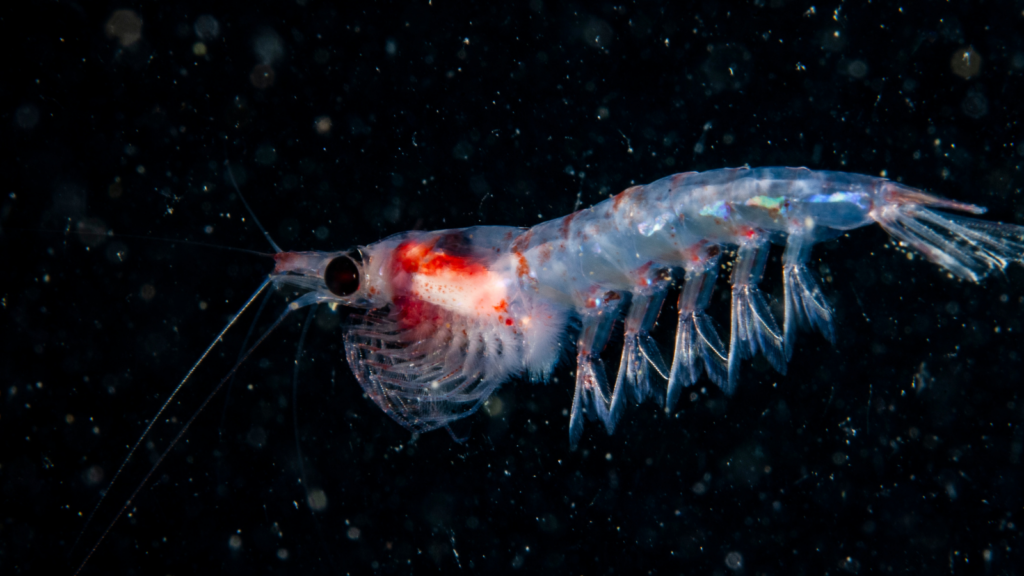Every year on August 11th since 2022 we celebrate World Krill Day: a special occasion dedicated to raising awareness about krill – small, yet mighty creatures that play a crucial role in the health of our global oceans and the ecosystem services they provide.

Krill are small crustaceans similar in appearance to shrimp that belong to the zooplankton community. Although they look small and insignificant at first glance, they are a cornerstone of marine food webs. They provide essential nourishment for a vast array of marine animals, including whales, seals, penguins, and fish.
These small organisms are not just food; they also contribute to the ocean’s biological pump, a process that helps sequester carbon dioxide from the atmosphere, thereby helping regulate the Earth’s climate. As krill feed on phytoplankton, they help transfer carbon from the surface waters to the deep sea when they excrete waste, or when they die and sink, effectively storing carbon away from the atmosphere.
The Global Ocean Observing System coordinates ocean observations covering climate and ocean health and providing more accurate weather forecasts and early warnings. By helping the development of observing tools and technology, information systems, and scientific analysis, and promoting collaboration and coordination, GOOS enables the provision of the necessary data and insights to understand krill habitats, assess the impacts of environmental changes, and support research efforts to help manage krill.
As part of the zooplankton community, krill form part of the GOOS Essential Ocean Variables (EOVs) – critical ocean measures that allows efficient monitoring of the state and health of the ocean. Through the comprehensive monitoring of the zooplankton EOV and global collaboration, GOOS plays a crucial role in ensuring the health and sustainability of krill populations throughout the ocean, as well as the broader marine ecosystems they support.
Learn more about krill research in our previous article with GOOS BioEco Panel member Kim Bernard: https://goosocean.org/news/a-key-component-of-marine-ecosystems-is-changing-together-with-our-climate/
About GOOS:
The Global Ocean Observing System (GOOS) is the global home of ocean observing expertise and systematic coordination. We lead and support a community of international, regional and national ocean observing programmes, governments, UN agencies, research organizations and individual scientists. Our Core Team of expert panels, observing networks, alliances and projects, supported by the GOOS Office, is in touch with ocean observing and forecasting around the world. We are a programme led by the Intergovernmental Oceanographic Commission (IOC) of UNESCO, with UN and science co-sponsors: World Meteorological Organization (WMO), UN Environmental Programme (UNEP) and the International Science Council (ISC).
